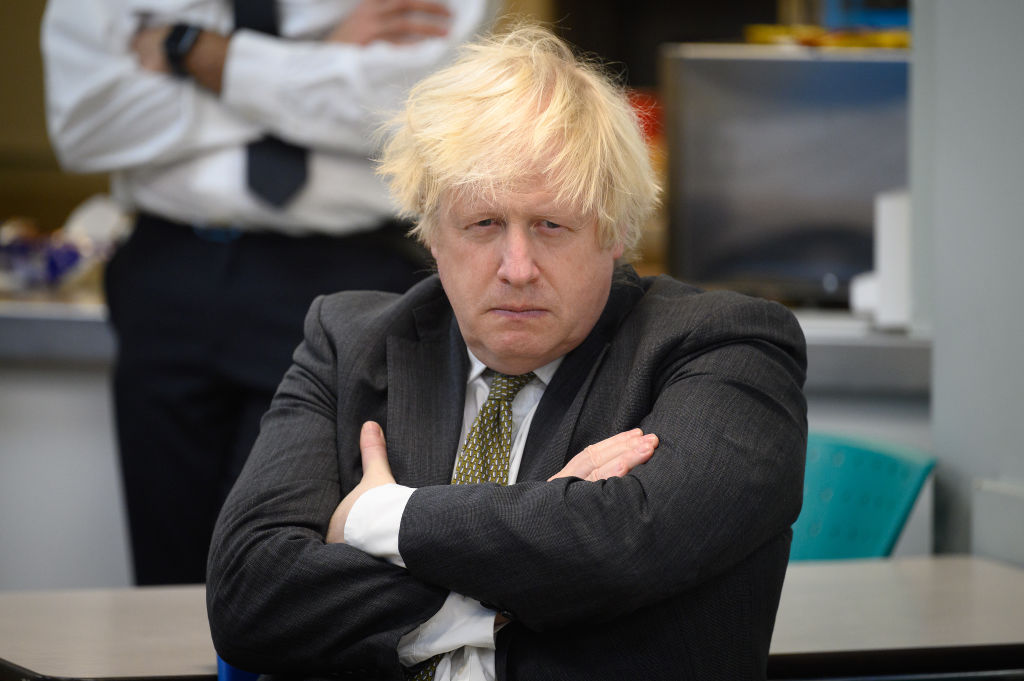As we enter the third year of the pandemic, we need to grit our teeth and learn to live with it

It seemed, for a while, as if this year might be better than the last, with the pandemic on the wane, retail and hospitality beginning to reopen and a hint of normality being felt in the public square. The onset of the omicron variant over the past few weeks has been a blow: although it may be a milder affliction than its predecessors, it is more virulent and infectious, and may have some resistance to vaccination.
So back we went to rumours and counter-rumours from Whitehall, half-heard tales of power struggles, angry briefing by those for and against the government issuing new restrictions on travelling and gathering. The prime ministerial press conference was preceded by the usual leaks—to the continuing annoyance of the speaker of the House of Commons—and Boris sorrowfully told us that we would have to return to mask-wearing.
In comparison to last year, however, Christmas has been “saved”: we were still able to gather in family groups and travel was not restricted (though waves of omicron assailing transport staff has been an unofficial brake on movement).
New Year’s Eve (or Hogmanay, to some of us) will be “saved” too. It seems that the epidemiology is coinciding with the prime minister’s natural instinct towards liberality. This is good. People need to decompress, to relax and to celebrate; and hospitality desperately needs customers through the doors. What does this mean for 2022?
I am neither a vaccine sceptic, nor a believer that covid is just like flu. The virus killed my mother in its early stages (though she was anyway terminally ill) and I know enough people who have suffered badly from it not to take it seriously. Nevertheless, two things seem to me to be true: one, that, while vaccines are helping enormously, we are unlikely to eradicate Covid-19; and two, that people will continue to die from it, probably in small and reducing numbers.
If both of these things are the case, the government, and we as a society, need to think about how we are going to learn to live with Covid-19 as a known pathogen. Only die-hard authoritarians believe that we can continue to insist on widespread mask-wearing, or that serious restrictions on how and in what numbers people can gather will remain in force, over the long term. We are already seeing signs of truculence and disobedience: get on the Tube and count how many passengers are wearing masks properly.
Some of the temporary measures introduced to combat the spread of Covid-19 may prove durable. While pubs will want to return to a cheerily hugger-mugger atmosphere, some bars and cafés may decide to retain table service, especially as it can be so easily managed through smartphone apps. Many customers may prefer it.
Major transport providers like TfL may continue to encourage mask-wearing (though it is hard to see mandatory measures lasting very long). This gentle nudge may push up numbers over time until at least some sections of the population take it for granted. Perhaps this would be an opportunity for virtue-signalling to finally serve a societally useful purpose.
We must also rely on ongoing scientific research to provide a pipeline of vaccines and booster injections as Covid-19 continues to mutate. Not all will be effective, but if, like some instances of omicron, the virus can be minimised to cold-like symptoms or total lack of symptoms, that will contribute considerably to public confidence and public health.
Listening to the science – and the science alone – is always going to drive us towards more restrictions, more measures, more control. That is inevitable, as the scientific priority is to reduce or eradicate the virus. Over the next year, however, we will need more and more to bring in other, balancing considerations, until we can use everything at our disposal to bring infection rates to a level which we can live with. Only then, with our teeth gritted, will we truly be able to move on.